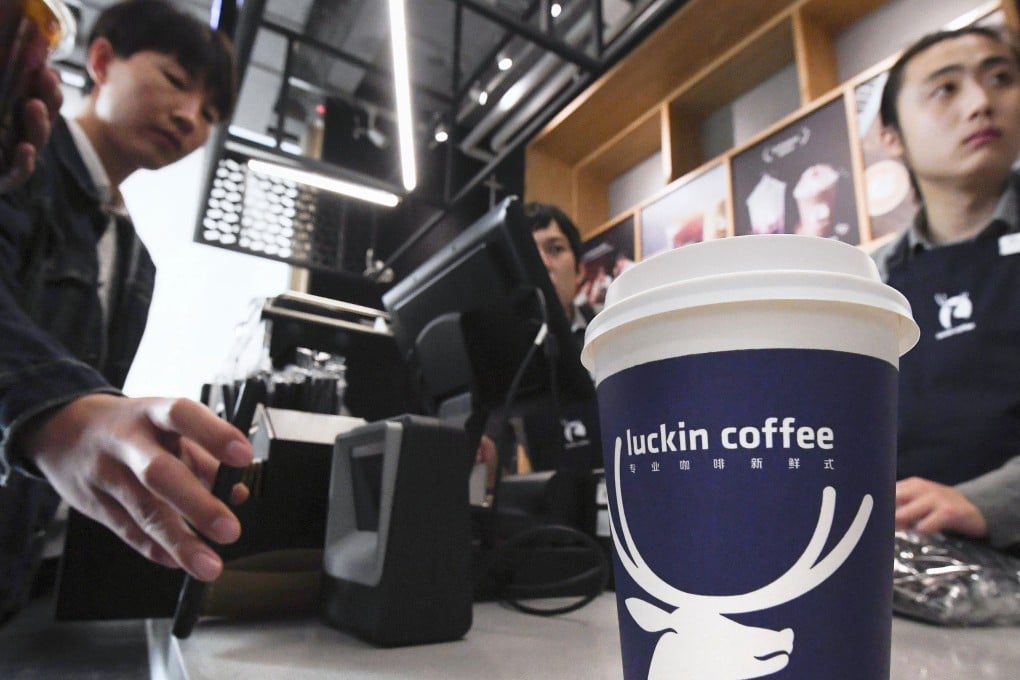China’s loss-making Luckin Coffee start-up doubles down on subsidies to win customers from Starbucks
- Luckin plans to add about 2,500 new stores this year, increasing its total number of outlets to more than 4,500

Luckin Coffee, the loss-making challenger to Starbucks, is doubling down on its store expansion and consumer subsidies this year, with plans to open about 2,500 new outlets in the world’s most populous nation.
That would bring the Xiamen-based start-up’s total number of stores in the country to more than 4,500, according to company co-founder and chief executive Qian Zhiya at a press briefing in Beijing on Thursday. It would also overtake Starbucks’ current total of about 3,600 stores across China.
“Luckin aims to become China’s biggest coffee chain brand by the year end, totally surpassing Starbucks by cups of coffee sold and number of shops,” Qian said.
Founded in 2017 as a coffee-and-bakery chain, Luckin has had an espresso-charged start in terms of store expansion, fuelled by consumer subsidies and growing demand for coffee in a country that traditionally preferred drinking tea. As a brainchild of the same founding team behind ride-hailing platform UCAR, Luckin was originally billed as a smartphone-based on-demand coffee business but has morphed into a more traditional bricks-and-mortar coffee shop chain.
“Subsidy will remain as one of our core strategies, at least in the next three to five years,” Luckin chief marketing officer Yang Fei said in the same briefing. “Our investors are not the least concerned. On the contrary, they believe we are being too conservative.”
The store expansion of Luckin, which is valued at US$2.2 billion, comes after its tie-up with Meituan Dianping to deliver coffee and other food products through the Chinese on-demand services giant’s nationwide delivery network.